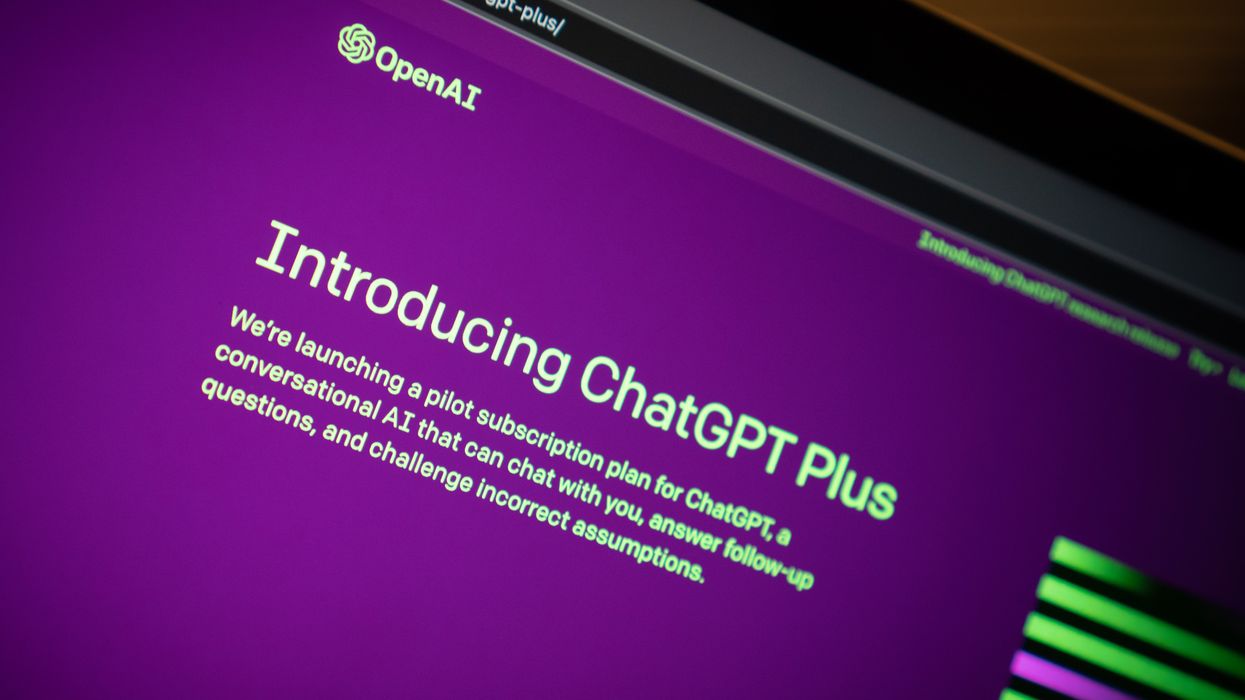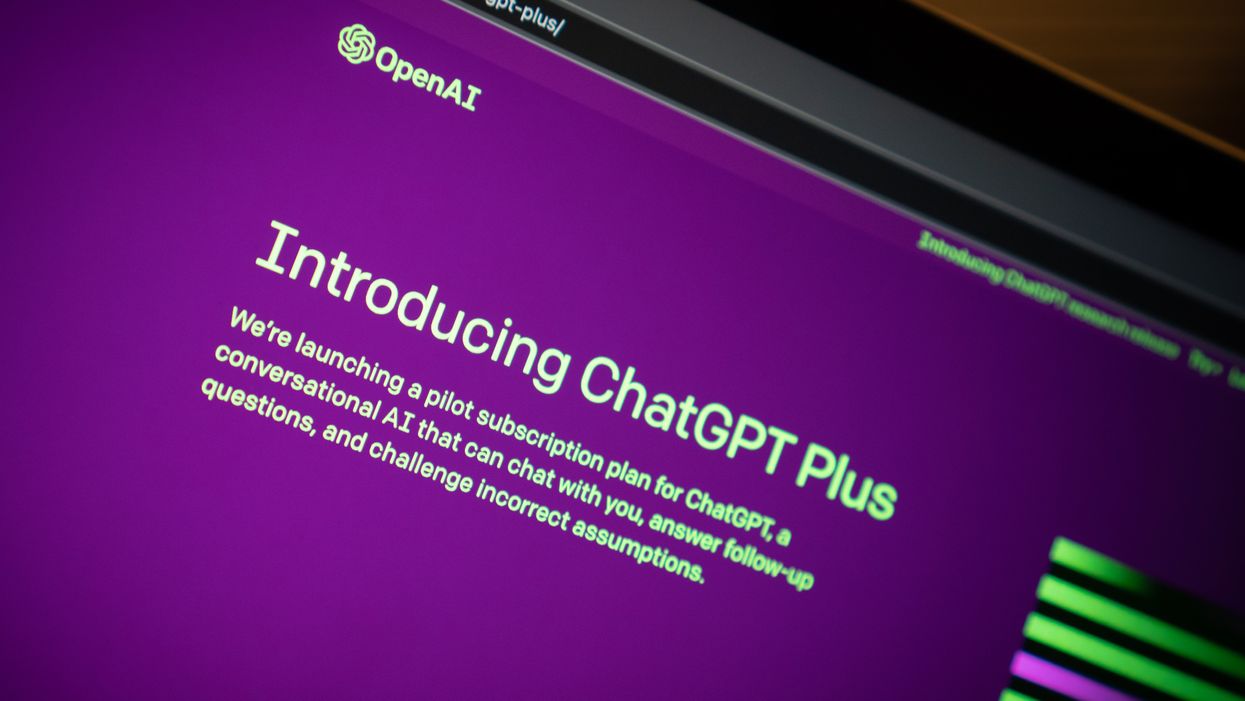8 Ways ChatGPT Can Make You a Better Writer
Warning: Attempt to read property "user_login" on bool in /home/productaccess/dfyblogs.productaccess.in/wp-content/themes/motocom/vendor/motocom-functions.php on line 1285
Warning: Attempt to read property "last_name" on bool in /home/productaccess/dfyblogs.productaccess.in/wp-content/themes/motocom/vendor/motocom-functions.php on line 1286

By Richard D. Harroch and Dominique A. Harroch
Writing can often feel like an intimidating endeavor, presenting the complex challenge of balancing multiple competing objectives. The craft demands a delicate nuance: one must sound professional yet authentic, creative yet clear, distinctive yet accessible. The process can seem overwhelming, particularly when faced with a blank page and the pressure of deadlines.
ChatGPT has emerged as a sophisticated writing companion, offering comprehensive support across the various stages of the writing process. Consider it a multifaceted tool that functions simultaneously as a brainstorming assistant, editor, idea generator, and writing coach.
This article, which uses research assistance from ChatGPT, will explore eight compelling strategies through which ChatGPT can transform your writing experience. We aim to address the inherent challenges of the writing process and demonstrate how technological assistance can make writing not just more manageable, but potentially more engaging and productive. Our goal is to illuminate the ways in which writers can leverage this innovative tool while maintaining their own voices and originality.
1. Jumpstart Your Ideas
Every writer has stared at a blank page, waiting for inspiration to strike. It’s not fun. ChatGPT can save you this frustration by generating ideas to get you started. You give it a topic, a theme, or even a vague concept, and it’ll throw out suggestions to help you hit the ground running.
- Generate brainstorm lists: Need plot twists for your novel? Fresh angles for a blog? ChatGPT can offer plenty of options to spark your creativity.
- Create writing prompts: Give it a genre or tone, and it’ll suggest scenarios to help you explore new directions.
- Expand on vague ideas: Got an idea that’s half-formed? ChatGPT can help flesh it out with specific details or suggestions.
- Unstick writer’s block: Sometimes, all you need is a nudge to keep the words flowing.
2. Improve Sentence Flow
Even great ideas can fall flat if your sentences are clunky or repetitive. ChatGPT is like that friend who reads your work and says, “This part doesn’t feel quite right.” It can help you rewrite or smooth out awkward phrasing, and make sure your sentences actually flow.
- Rephrase for clarity: If something you have written sounds off or not quite hitting the mark, you can prompt ChatGPT to suggest alternative ways to word it.
- Avoid repetition: It helps you spot when you’re overusing the same phrases or ideas.
- Balance sentence length: It can recommend ways to mix shorter and longer sentences for a more dynamic rhythm.
- Keep the tone consistent: Whether formal, conversational, or playful, ChatGPT can keep your tone on track.
Sign up for our free weekly AllBusiness.com newsletter here
3. Build Stronger Arguments
Writing something persuasive? ChatGPT can help you structure your arguments, find counterpoints, and organize your thoughts into a logical flow. This is especially useful for essays, opinion pieces, and professional writing.
- Outline your argument: ChatGPT can help you map out your key points before you start writing.
- Find supporting details: Ask for examples, stats, or hypothetical scenarios to back up your ideas.
- Challenge your assumptions: It can play devil’s advocate and suggest opposing views you might not have considered.
- Keep it logical: It helps you spot gaps in your reasoning or areas that need clarification.
4. Polish Your Grammar
Nobody wants to be the person who sends out a professional email with a glaring typo—or worse, writes an essay riddled with grammar mistakes. While it’s not a replacement for proofreading, ChatGPT can help you catch errors and polish your language.
- Spot common mistakes: It can flag grammar, spelling, and punctuation issues.
- Suggest better word choices: It offers synonyms and alternatives to make your writing more precise.
- Simplify overly complex sentences: If you’ve gone a bit too convoluted it can tone it down for you.
- Check for passive voice: It can help you rewrite sentences to sound more active and engaging.
5. Help With Research
Writing about a topic you don’t know much about? ChatGPT can provide quick summaries or background information to get you up to speed. While you should always fact-check and dig deeper, it’s a great starting point. Remember that AI tools still produce inaccuracies, also called hallucinations.
- Summarize complex topics: Ask ChatGPT to break down technical concepts or explain jargon.
- Provide context: Need a quick overview of historical events, cultural references, or scientific terms? It’s got you covered.
- Generate questions to explore: Not sure where to start researching? ChatGPT can suggest angles and questions.
- Recommend resources: It can point you toward books, articles, or keywords to search for further reading. The latest versions even show citations on the side bar, but keep in mind those can be incorrect.
6. Adapt to Different Writing Styles
Whether you’re writing a professional email, a heartfelt letter, or a sci-fi short story, ChatGPT can adapt its suggestions to fit the style you’re going for. It’s like having a flexible writing coach that’s good at everything.
- Match the tone: From casual to formal, ChatGPT can tweak its suggestions to match the vibe you’re aiming for.
- Mimic famous authors: Want to write like Hemingway or Austen? It can suggest stylistic adjustments inspired by their work.
- Experiment with genres: Not sure how to write a thriller opening or a romantic dialogue? ChatGPT can give you examples.
- Practice creative writing: It’s a great tool for learning new styles and pushing your creative boundaries.
7. Save Time Without Sacrificing Quality
Writing is hard work, and sometimes you just need to get the job done. ChatGPT can help you write faster while maintaining quality by handling the repetitive or time-consuming parts of the process.
- Draft faster: It can help you outline, write introductions, or even draft entire sections for you to refine.
- Revise more efficiently: Use it to spot weak areas or suggest edits.
- Organize your thoughts: It can structure your ideas so you’re not stuck rearranging paragraphs endlessly.
- Handle the tedious stuff: Whether it’s coming up with headings, summaries, or email templates, ChatGPT can save you time.
Build your email list, personalize campaigns, and boost sales—try Campaigner now
8. Specific Prompts Make All the Difference
To get the most help from ChatGPT, keep in mind that the quality of the output heavily depends on the quality of your input. The more specific your prompt, the better the response. Think of ChatGPT as a highly capable assistant that needs clear instructions to deliver exactly what you want. Vague prompts lead to general answers, but detailed, well-thought-out prompts can result in responses that feel tailor-made for your needs. You may need several follow-up prompts to get closer to what you really need.
Here’s why specificity matters and how your prompts can harness it to get the best results:
a) Define the tone you want: ChatGPT is versatile, but it doesn’t read minds. If you want your writing to have a formal tone, a conversational feel, or even a playful vibe, you need to say so. For example:
- General prompt: “Help me write a letter to a client.”
- Specific prompt: “Help me write a formal, professional email to a client thanking them for their business and offering a discount on their next purchase.”
b) Be clear about the format: Whether you need an outline, a full draft, bullet points, or a specific structure, let ChatGPT know upfront. It can adapt to nearly any format as long as you provide clear guidance. For example:
- General prompt: “Help me write an article about remote work.”
- Specific prompt: “Help me write a 700-word article on remote work with an introduction, three main sections, and a conclusion.”
c) Provide context and details: The more context you provide, the better ChatGPT can tailor its response. Include background information, key points you want covered, or any specific requirements. For example:
- General prompt: “Write a blog about productivity.”
- Specific prompt: “Write a blog about productivity for freelance workers, focusing on time-blocking techniques and tools like Trello and Notion.”
d) Specify ideas or themes: If you already have some ideas in mind, include them in your prompt. This helps guide ChatGPT in the right direction and ensures it reflects your vision. For example:
- General prompt: “Help me write a story.”
- Specific prompt: “Help me write a 500-word story about a child who discovers a hidden world in their backyard. Include themes of friendship and bravery.”
- Image creation: You can even ask a ChatGPT image counterpart like Dall-E or another AI-driven image software tool to help you create images to support your written work.
e) Iterate for refinement: Sometimes, even with a specific prompt, you might not get exactly what you’re looking for on the first try. That’s okay! Adjust your prompt based on the initial response and ask for improvements. For example:
- “Can you make this tone more conversational?”
- “Add more examples to support the main points.”
- “Rewrite this section to make it more concise.”
- “Add a section on why football players are the best leaders.”
Conclusion on How to Use ChatGPT to Become a Better Writer
ChatGPT isn’t here to replace your voice or creativity—it’s here to amplify them. By taking on some of the heavy lifting, it frees you up to focus on what really matters: your unique ideas and perspective. Whether you’re brainstorming, drafting, or editing, ChatGPT is like having a writing assistant who’s always ready to help (and doesn’t mind working late).
So, the next time you’re feeling stuck or overwhelmed, give ChatGPT a try. It’s not just about making your writing better—it’s about making the process smoother, faster, and maybe even a little more fun. Writing doesn’t have to be a solo journey anymore, and that’s something worth celebrating.
Related Articles:
- The Top 10 Movies of All Time According to AI
- The Top 10 Tech Breakthroughs of All Time According to AI
- Valuations and Funding Rounds Continue to Soar for AI Companies
About the Authors
Richard D. Harroch is a Senior Advisor to CEOs, management teams, and Boards of Directors. He is an expert on M&A, venture capital, startups, and business contracts. He was the Managing Director and Global Head of M&A at VantagePoint Capital Partners, a venture capital fund in the San Francisco area. His focus is on internet, digital media, AI and technology companies. He was the founder of several Internet companies. His articles have appeared online in Forbes, Fortune, MSN, Yahoo, Fox Business and AllBusiness.com. Richard is the author of several books on startups and entrepreneurship as well as the co-author of Poker for Dummies and a Wall Street Journal-bestselling book on small business. He is the co-author of a 1,500-page book published by Bloomberg on mergers and acquisitions of privately held companies. He was also a corporate and M&A partner at the international law firm of Orrick, Herrington & Sutcliffe. He has been involved in over 200 M&A transactions and 250 startup financings. He can be reached through LinkedIn.
Dominique Harroch is the Chief of Staff at AllBusiness.com. She has acted as a Chief of Staff or Operations Leader for multiple companies where she leveraged her extensive experience in operations management, strategic planning, and team leadership to drive organizational success. With a background that spans over two decades in operations leadership, event planning at her own start-up and marketing at various financial and retail companies, Dominique is known for her ability to optimize processes, manage complex projects and lead high-performing teams. She holds a BA in English and Psychology from U.C. Berkeley and an MBA from the University of San Francisco. She can be reached via LinkedIn.
Copyright (c) by Richard D. Harroch. All Rights Reserved.
Related Posts

Technical Analysis: 4 Stocks with signs of death crossovers to keep an eye on

HDFC Bank & 3 other fundamentally strong stocks trading above 200 DMA to keep an eye on

Falling Channel Breakout: Multibagger NBFC Stock Shows Bullish Momentum on Daily Chart

4 Fundamentally strong stocks to buy for an upside potential of up to 36%; Do you hold any?


